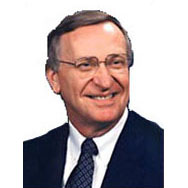
Last week advocates of an Article V constitutional convention to rein in the power of the federal government descended on Richmond to make their case before receptive legislators who like to bash Washington with regularity. Calling on the words of the founding fathers, the advocates of a constitutional convention called by the states promised a balanced federal budget and strict limitations on the powers of Congress and the presidency in their new constitution. The evening before the hearing on the proposed constitutional convention the members of the Rules Committee of which I am a member received a flurry of emails from 2nd Amendment gun rights advocates asking that the proposal for a constitutional convention be defeated for “such a convention would surely be a threat to the 2nd Amendment’s rights.” Interesting that the gun rights advocates who like to complain about the power of government fear that a debate on the 2nd Amendment today might limit their rights. The resolution for the convention passed with my nay vote because of my general concerns about turning over the redefining of our government to those who oppose many personal liberties.
There are many examples of the balancing of ideas and ideals that can lead to meaningful discussion and hopefully better solutions. At the same time a discussion of issues can lead to misunderstandings. In a recent opinion column it was suggested that I insisted “meals and trips be protected from reform” of ethics laws. Nothing could be further from the truth. In a discussion about the complexities of writing an ethics reform law that defines inappropriate behavior I raised a question about invitations to legislators to speak at luncheon or dinner meetings of business or community leaders or trips that were truly educational. I do not want anything left out; I want the grey areas addressed in a way that will not reduce legitimate interaction among legislators and people they represent while sharply defining ethical behavior. I am confident that such a bill will be passed.
In a recent letter to the editor, questions were raised about a member of the House who took an Alford plea to involvement with a 17-year-old girl. I was part of a unanimous Democratic Caucus that expelled him from the caucus and called for his resignation or removal from the House. He subsequently resigned, ran as an Independent, and was re-elected. Ideally it seems that he should be removed from the House, but there has been reluctance to remove a member who was just duly elected. Further criminal charges related to that individual since his re-election could lead to his removal.
Tough issues come to the legislature for resolution. Too often environmental protections are cast as being bad for business, but they do not have to be in conflict. There are many green job opportunities. New technology with new business models, like Uber, are threatening to the traditional taxicab industry, but there is room for both to succeed.
Ideas and ideals clash in the legislature. That makes the job interesting and at the same time challenging. I am always available to discuss my position on issues or my votes with anyone, [email protected].
Ken Plum is a member of the Virginia House of Delegates.










